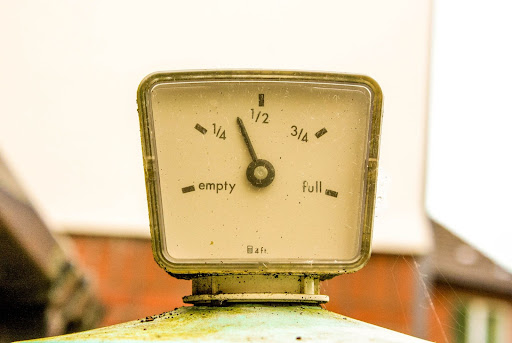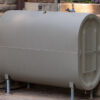
- Posted by: Superior
- 0 Comments
What You Should Do If Your Oil Tank Is Leaking
What You Should Do If Your Oil Tank Is Leaking
There are many parts of your home’s heating system that you may forget about until something suddenly goes wrong. The oil tank is one of the most common pieces of equipment that most homeowners forget until a large amount of damage is done. A leaking oil tank is no minor issue that you can ignore. It could cause a lot of damage to your home or your neighbors if left unchecked.
If you suspect an oil leak or notice one, don’t just sweep it under the rug and imagine it will fix itself. A leak, whether from an outdoor or indoor tank, must be quickly handled by a professional. If you are dealing with your oil tank leaking or want to know for the future, here are a few crucial factors you should know and can complete immediately to help aid the repair process.
Indoor and Outdoor Leaks are Different
Despite what you may think, an outdoor oil leak and an indoor one are opposite. They both present various risks and can be determined in different ways. It would be best if you approached fixing an outdoor leak in a substantially different way than an indoor one.
Even though an oil tank leaking is a dire situation, there are significant reasons that these two should not be handled the same way. Here are some of the ways that these emergencies differ.
Indoor Leaks
It is much easier to spot a leak from an indoor oil tank than an outdoor one. If you notice an oil smell or see visible leakage from the tank, that signifies an issue. If you have a damaged oil tank, you should contact a professional, like Tank and Superior Energy, to take care of it.
Our first thought may be that an indoor oil tank leaking is hazardous, and while this is true, an indoor leak is surprisingly less severe than an outdoor one. However, there are two main issues with indoor leaks:
- Oil is combustible: If you have an oil leak in your home, you should make sure that you contact the fire department immediately and ventilate the area around the leak. Open a window around the area to help the atmosphere remain clear until the fire department arrives.
- Oil can cause health problems: An oil leak is harmful to your home and can also be detrimental to your health. The smell and presence of oil vapors in the air can create headaches, nausea, euphoria, loss of coordination, and dizziness. If exposed for too long, these symptoms may become long-term effects. Therefore it is best to remove your family from your home when an oil leak occurs so that everybody remains safe during the repair process.
Outdoor Leaks
It may seem like an outdoor leak would be significantly less severe than an indoor one, but that is not true. An outdoor leak is more dangerous because it can unknowingly affect your home’s soil and your neighbor’s water supply. It can also be prohibitively expensive, costing as much as $15,000 to remedy. In addition, you may not even realize that this type of contamination is occurring, so a professional should check your soil to know if your oil tank is leaking. Here are some straightforward ways to tell if your property has a problem.
- Your soil sample from around and above your oil tank will show traces of oil and indicate that your tank is leaking. This test is a reliable way to know if your tank is leaking and should be done routinely so that the risks of an oil leak are low and you and your neighbors can remain safe.
- If your neighbor’s water supply becomes contaminated and you are the closest home to them. This is a sure sign that your oil tank is leaking. A leak like this is dangerous because it can go unnoticed until it harms everyone.
- If you begin construction (such as a swimming pool) and realize that the soil smells strongly of oil, this signifies that a tank leak is present and should be dealt with quickly before completing construction.
Fixing Your Oil Tank
As we mentioned, fixing indoor or outdoor oil tank leaks is a different undertaking. They are both extremely dangerous but should be handled in specialized ways. However, the biggest similarity is that if either oil tank is leaking, you should always contact a professional to help you — it’s not an issue you should attempt to solve on your own. That could result in injury and extreme damage to your property. Here are some key repair steps you should take when an oil leak occurs or is suspected.
Indoor Oil Tank
The first thing you should do for your leaking indoor oil tank is to notify the fire department and ventilate the area. Then remove your family from home so they stay safe from the oil vapors until the problem is entirely resolved. After that step, you should call a professional oil cleaning and repair company, so they can inspect and repair the damage. Lastly, you should contact your insurance company because many homeowners’ policies include oil spill provisions.
Outdoor Oil Tank
For your outdoor oil tank, as soon as you suspect a leak, you should contact an environmental expert to help take a soil sample and determine whether it is true. Then you should hire a state-certified contractor to remove your tank and notify the authorities. The professionals will help determine the extent of your leak and how much it will cost to fix the damage. After this, you should contact your insurance company to see if you are covered. If there is no water table damage, it is an easy fix with clean soil, and you can file the paperwork, and the process will be done!
Make Sure Your Oil Tank is in Good Condition
It would be best if you always kept a close eye on your oil tank. Whether inside or outside, it can still be a hazardous issue if left unattended. If you require emergency oil tank repair or tank cleaning, contact us at Superior Tank & Energy to see how we can help you today!






Recent Comments